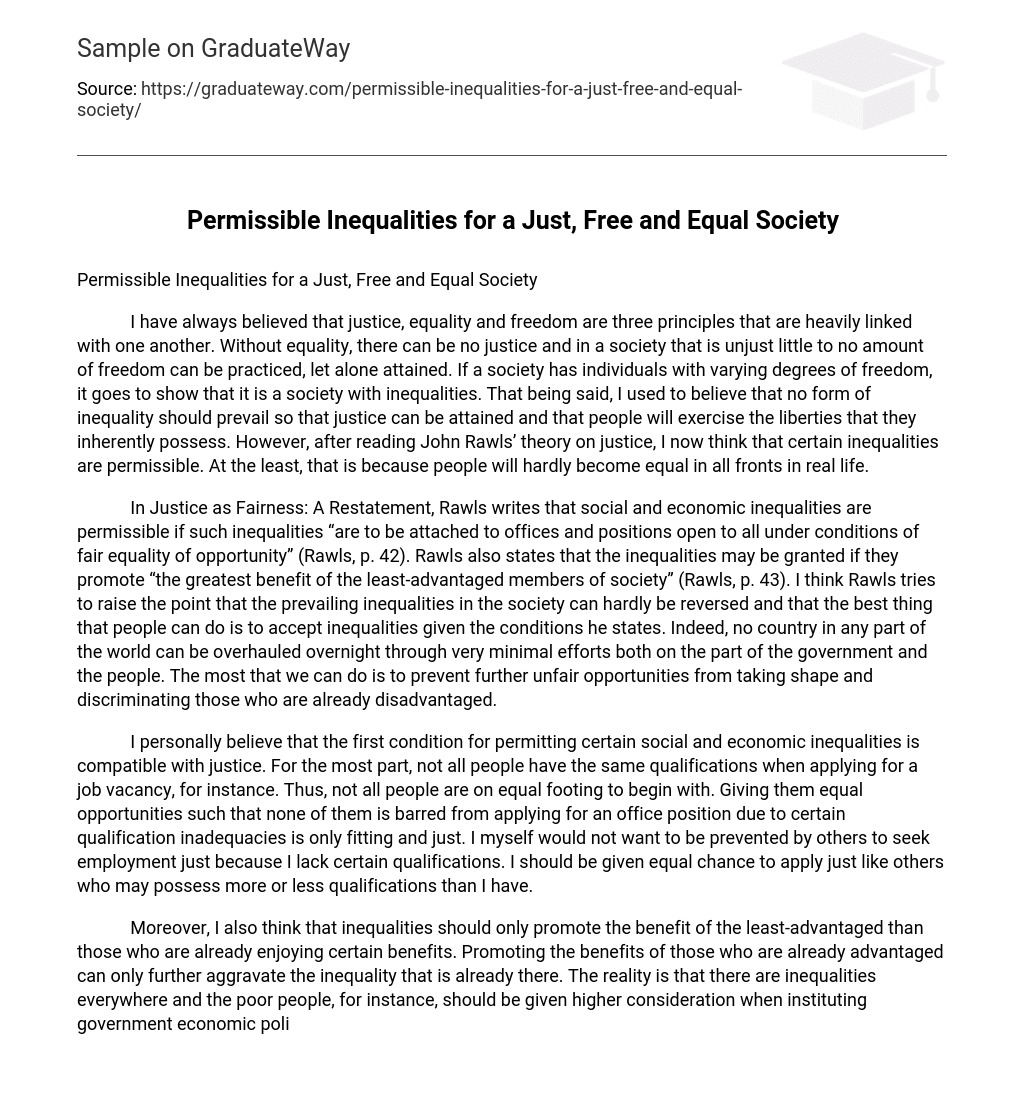I have always believed that justice, equality and freedom are three principles that are heavily linked with one another. Without equality, there can be no justice and in a society that is unjust little to no amount of freedom can be practiced, let alone attained. If a society has individuals with varying degrees of freedom, it goes to show that it is a society with inequalities. That being said, I used to believe that no form of inequality should prevail so that justice can be attained and that people will exercise the liberties that they inherently possess. However, after reading John Rawls’ theory on justice, I now think that certain inequalities are permissible. At the least, that is because people will hardly become equal in all fronts in real life.
In Justice as Fairness: A Restatement, Rawls writes that social and economic inequalities are permissible if such inequalities “are to be attached to offices and positions open to all under conditions of fair equality of opportunity” (Rawls, p. 42). Rawls also states that the inequalities may be granted if they promote “the greatest benefit of the least-advantaged members of society” (Rawls, p. 43). I think Rawls tries to raise the point that the prevailing inequalities in the society can hardly be reversed and that the best thing that people can do is to accept inequalities given the conditions he states. Indeed, no country in any part of the world can be overhauled overnight through very minimal efforts both on the part of the government and the people. The most that we can do is to prevent further unfair opportunities from taking shape and discriminating those who are already disadvantaged.
I personally believe that the first condition for permitting certain social and economic inequalities is compatible with justice. For the most part, not all people have the same qualifications when applying for a job vacancy, for instance. Thus, not all people are on equal footing to begin with. Giving them equal opportunities such that none of them is barred from applying for an office position due to certain qualification inadequacies is only fitting and just. I myself would not want to be prevented by others to seek employment just because I lack certain qualifications. I should be given equal chance to apply just like others who may possess more or less qualifications than I have.
Moreover, I also think that inequalities should only promote the benefit of the least-advantaged than those who are already enjoying certain benefits. Promoting the benefits of those who are already advantaged can only further aggravate the inequality that is already there. The reality is that there are inequalities everywhere and the poor people, for instance, should be given higher consideration when instituting government economic policies than those who are already in a better financial position. Prioritizing the social and economic needs of the least-advantaged is the most just thing to do. I think the aim of pushing the least-advantaged up the social and economic ladder is to reach a point of equilibrium or close to it so that, at the least, inequalities are prevented or are dissolved in part or in full. The closer we get to that point, the more just the society becomes and the more equal people stand. Also, people become freer than before since social and economic distinctions no longer hinder them from actively participating in social activities. Reading the work of Rawls is a mind-enriching experience because it provides a different perspective on the interrelated principles of justice, freedom and equality. While I still believe that those principles should always be upheld, I now realize that certain social and economic inequalities are permissible if they promote the benefits of the least-advantaged people in real life.
Work Cited
Rawls, John. Justice as Fairness: A Restatement. Ed. Erin Kelly. Harvard: Harvard University Press, 2001.





